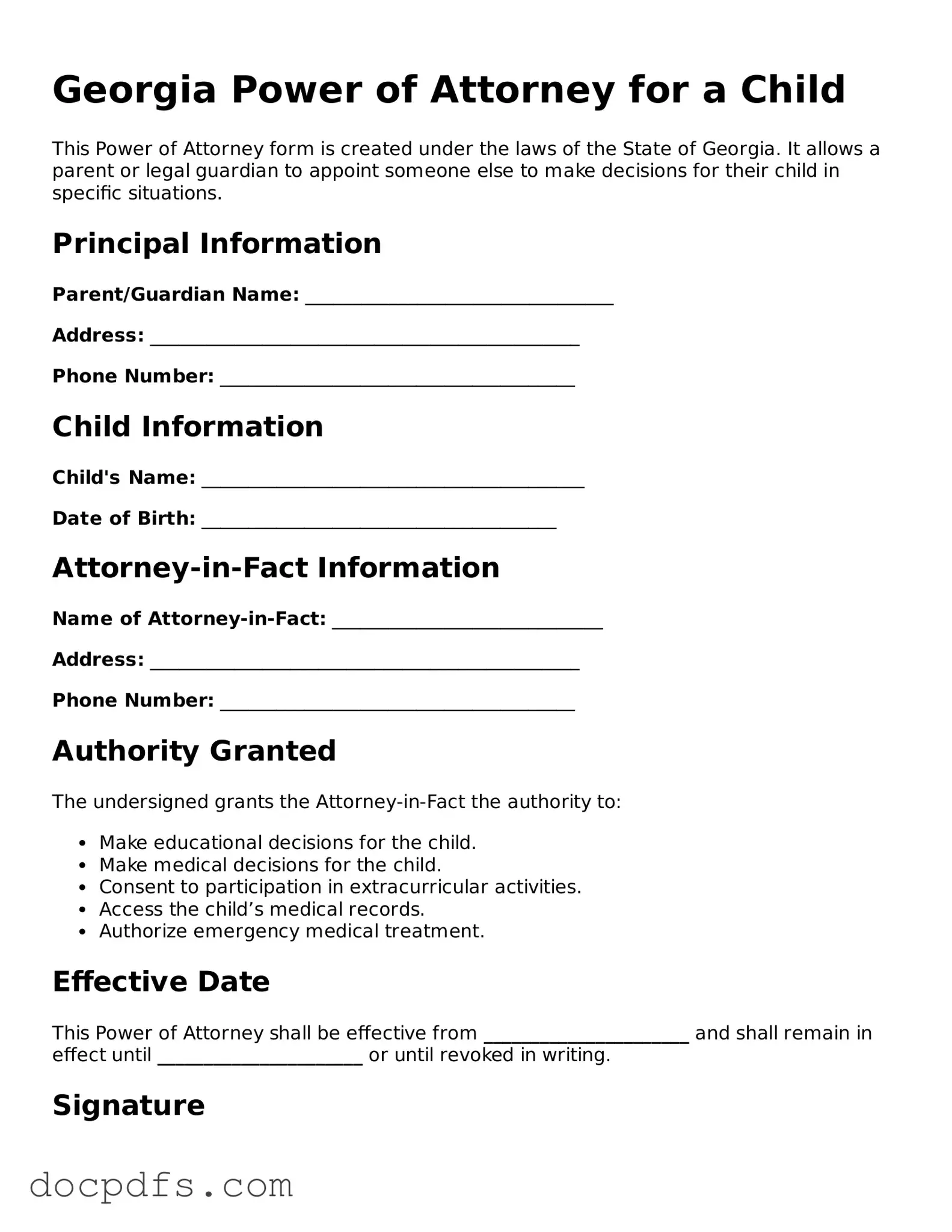Free Georgia Power of Attorney for a Child Form
The Georgia Power of Attorney for a Child form is a legal document that allows a parent or guardian to grant another individual the authority to make decisions on behalf of their child. This form is particularly useful in situations where a parent may be unavailable due to travel, work commitments, or other circumstances. By using this document, parents can ensure that their child's needs are met and that someone they trust is empowered to act in their best interest.
Open Power of Attorney for a Child Editor Now

Free Georgia Power of Attorney for a Child Form
Open Power of Attorney for a Child Editor Now

Open Power of Attorney for a Child Editor Now
or
⇓ Power of Attorney for a Child
Finish this form the fast way
Complete Power of Attorney for a Child online with a smooth editing experience.